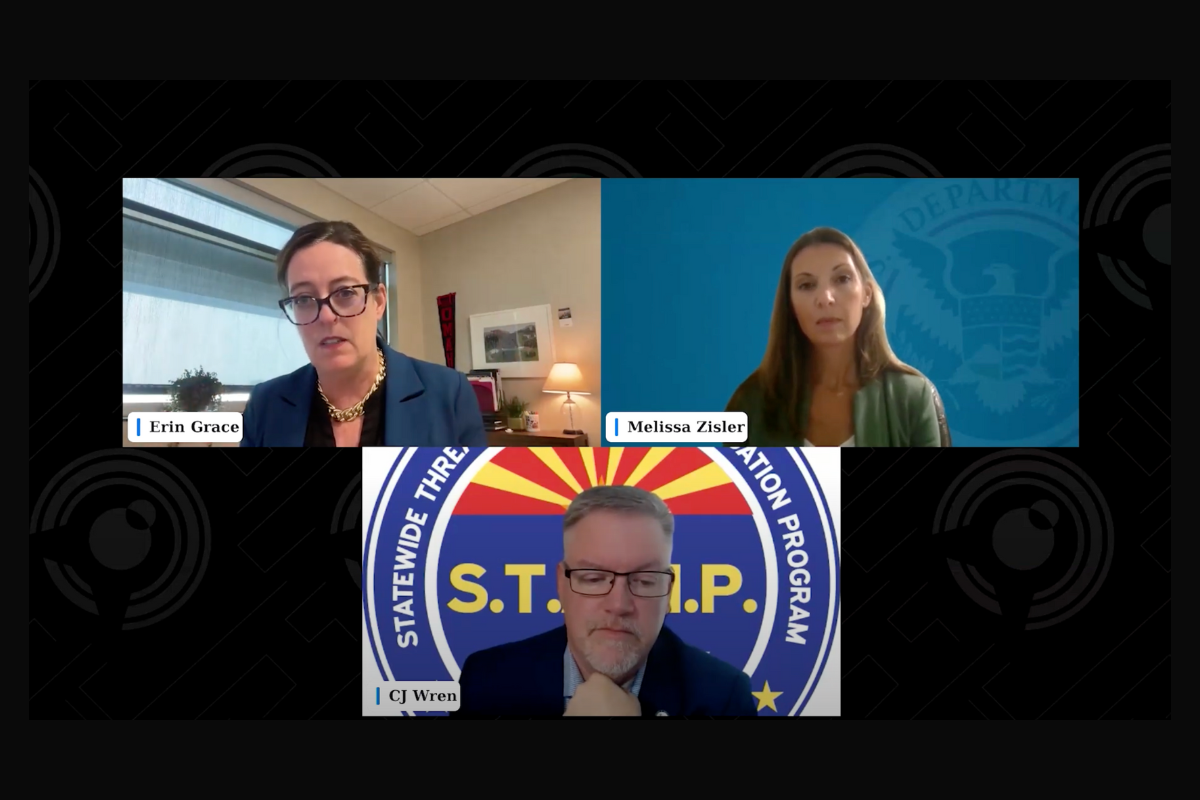RECAP: NCITE Webinar on Behavioral Threat Assessment and Management
- published: 2024/07/29
- contact: NCITE Communications
- phone: 4025546423
- email: ncite@unomaha.edu
- search keywords:
- threat assessment
- btam
- prevention

On July 25, NCITE hosted a webinar discussing behavioral threat assessment and management (BTAM). Panelists were:
- Melissa Zisler, Ph.D., director, National Threat Evaluation and Reporting (NTER) Office, Department of Homeland Security
- Detective CJ Wren, program manager, Arizona Statewide Threat Assessment and Mitigation Program (AZ-STAMP)
Key Takeaways
BTAM is not just about law enforcement response.
Wren stressed that the approach is “not about punishment,” but about keeping the community safe and getting help to the people in need. Wren cited a recent BTAM success story in Tempe, Arizona, in which the local FBI office flagged a threat of violence posted by a high school student on social media. The FBI shared the information with AZ-STAMP, which, in collaboration with the Tempe Police Department, contacted a school resource officer. The resource officer identified the student and reached out to the family, starting the intervention and mitigation process.
BTAM requires an interdisciplinary approach.
“We know we need help. We know we’re not the only ones out there on an island trying to solve this,” Wren said. Wren cited psychologists, mental health practitioners, public health personnel, and educators as among the professionals necessary to successfully address behavioral threats.
Zisler emphasized the need for a “holistic approach,” adding that “it took a bit for the law enforcement community to come around, and we’re still working (on) that.”
Buy-in is a big obstacle for BTAM programs.
“A lot of people still have the perspective of ‘this will never happen here,’” Zisler said. She said that communities need to develop prevention infrastructure and mitigation processes well before threats emerge.
"Start your team now,” Wren said. “I have a colleague who likes to say that ‘it’s too late when the Fox and CNN vans show up in front of your school and put a microphone in your face to start talking about BTAM then.’”
Balancing safety with privacy is a key concern for BTAM teams.
“There can be a lot of confusion with threat assessment and management as far as like, ‘is this profiling,’ right?” Zisler said. She said that teams assess behavior, not profiles. “Privacy and civil rights and civil liberties are at the forefront of everything we do,” Zisler said. “It is a huge block of our training.”
“Management” is divided into context and documentation.
Context: what are the circumstances in which threats are made?
Documentation: carefully recording mitigation efforts is essential for team transparency and post-evaluation. “It could cost someone their life if we’re not tracking these things all the way through,” Wren said.
Resources
- Tempe Care 7 Program
- Behavioral Approach to Violence Prevention | DHS Office of Intelligence and Analysis